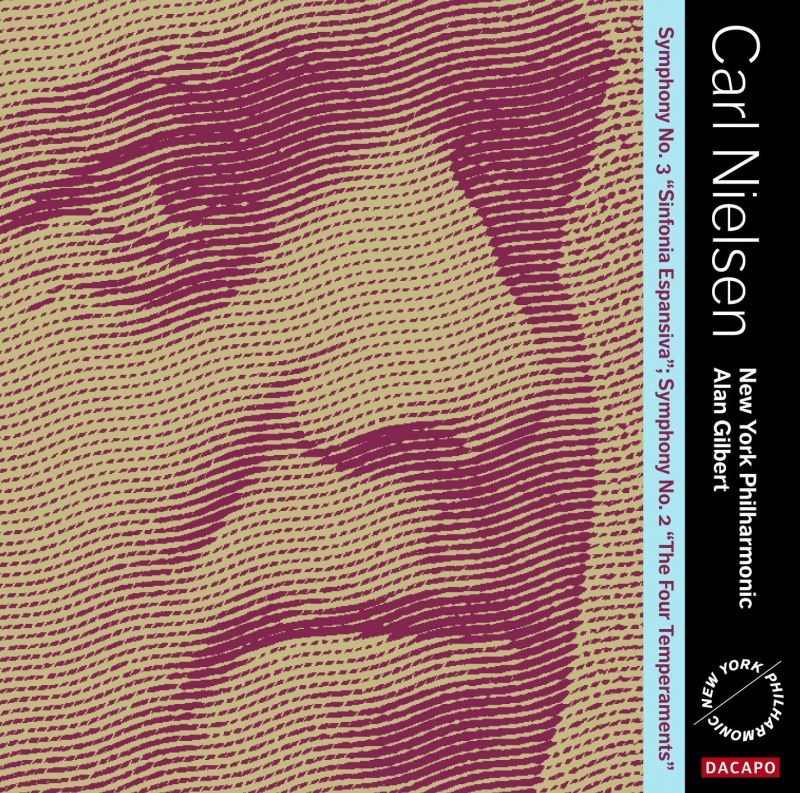NIELSEN Symphonies Nos 2 & 3
First disc in Gilbert’s New York Philharmonic Nielsen cycle
View record and artist detailsRecord and Artist Details
Composer or Director: Carl Nielsen
Genre:
Orchestral
Label: Dacapo
Magazine Review Date: 12/2012
Media Format: Super Audio CD
Media Runtime: 72
Mastering:
DDD
Catalogue Number: 6 220623

Tracks:
| Composition | Artist Credit |
|---|---|
| Symphony No. 2, '(The) Four Temperaments' |
Carl Nielsen, Composer
Alan Gilbert, Conductor Carl Nielsen, Composer New York Philharmonic Orchestra |
| Symphony No. 3, 'Sinfonia espansiva' |
Carl Nielsen, Composer
Alan Gilbert, Conductor Carl Nielsen, Composer New York Philharmonic Orchestra |
Author: David Fanning
Listen to the first couple of minutes of each movement and you would probably rank these as among the most thrilling of modern accounts. In fact the entire first movement of the Espansiva is a conspicuous success and the two vocal soloists in the slow movement are golden-toned (the baritone’s lines being even more impeccably sustained than the soprano’s). It is not until the third movement (lacking bite in the strings) that serious questions arise, and the lurch forward at 9'10" in the finale rather confirms that Gilbert doesn’t always sense the broader flow. In the Second Symphony, he hits on the ideal headlong tempo for the ‘Choleric’ temperament, and the ‘Phlegmatic’ is as idiomatically carefree as the ‘Sanguine’ is care-less. However, the ‘Melancholic’ slow movement is distinctly lacking in flow, and this is symptomatic of a more general problem.
There is absolutely no doubting Gilbert’s affection for the music. But while it would be an exaggeration to say that he kills the thing he loves, he does occasionally spoil it with sugary treats. He takes almost every espressivo and tranquillo as an invitation to luxuriate (Bernstein himself was equally at fault when it came to the Inextinguishable) and the result is a near-fatal loss of momentum in many of the lyrical passages.
The recording itself is also less than ideal. A few podium clunks are a price I don’t mind paying for the immediacy of live recording. What bothers me much more is that the brass loom over-large and the timpani tend to thud, so that the strings are all too often overpowered (woodwind solos are gorgeous, however). Whether this is a matter of Gilbert not quite balancing things aright or of the engineers not quite having the measure of the Avery Fisher, I can’t be sure. All in all, it makes for an overall impression rather less than the sum of some admirable parts and prevents a recommendation alongside the classic accounts of Blomstedt (San Francisco).
Discover the world's largest classical music catalogue with Presto Music.

Gramophone Digital Club
- Digital Edition
- Digital Archive
- Reviews Database
- Full website access
From £8.75 / month
Subscribe
Gramophone Full Club
- Print Edition
- Digital Edition
- Digital Archive
- Reviews Database
- Full website access
From £11.00 / month
Subscribe
If you are a library, university or other organisation that would be interested in an institutional subscription to Gramophone please click here for further information.




